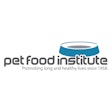By-products from human food, alcohol and produce are all under discussion as part of the Food Safety Modernization Act (FSMA) regulations covering human and animal foods.
The regulations modify and/or create current Good Manufacturing Practices (cGMPs), and provide for a completely new process of analyzing food adulteration hazards and creating a written safety plan that includes risk-based preventative controls designed to eliminate or minimize those adulteration risks. But questions have come up about what requirements would be imposed on suppliers of various by-products that ultimately end up as ingredients in animal foods.
As far as human food by-products goes, facilities that are covered by the FSMA human food regulation must follow human food cGMPs and create a safety plan for the manufacturing of their human food. According to reports, it is likely that when the revised proposed regulations are issued, human food manufacturers will need to make their safety plan broad enough to consider any risks associated with the by-products used as ingredients in animal food or feed.
Regarding by-products from alcohol, the FDA has said that the potential hazards associated with the use of spent grains in animal food were minimal. FDA also said that they wanted brewers and distillers to take common sense and reasonable measures to ensure that the spent grains were safe from chemical and physical hazards.
By-products from produce have not been discussed as extensively, and whether produce growers could fall within the requirements of animal food manufacturers by reason of their by-products going into animal food or feed has yet to be addressed.

















